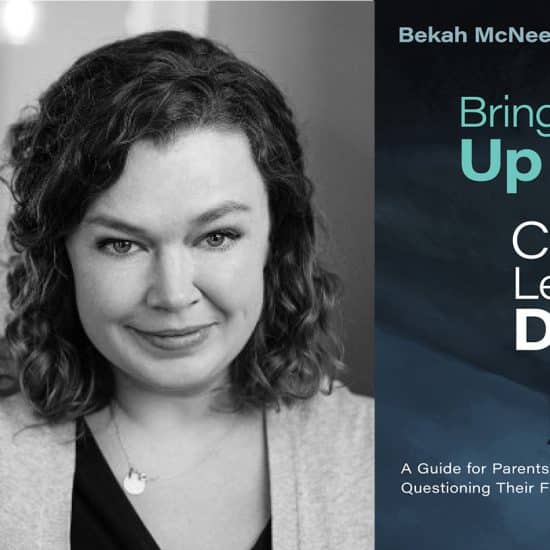Attending church with a preschool child can improve one’s prayer life. I silently hope my five-year-old son won’t say anything embarrassing when the leader for children’s time asks a question. I pray not too many people heard the outburst as he turned his coloring markers into fighting robots that kept making noises into the few seconds of silence after the choir’s special music ended. As he crawls under the pew, I wonder if I’ll need to ask forgiveness if he pops up between someone’s legs.
 Brian KaylorAnd then there are moments like communion when I practically rededicate myself as the sacred time begins. He apparently thinks we are keeping a yummy snack time from him, which clearly proves he hasn’t tasted those communion wafers! The bulletin notes they are free of gluten, wheat, dairy, yeast, eggs, soy, nuts and corn. I’m not sure what’s left. Yet I still hope my son will just keep coloring so he doesn’t notice the deacons coming down the aisles.
Brian KaylorAnd then there are moments like communion when I practically rededicate myself as the sacred time begins. He apparently thinks we are keeping a yummy snack time from him, which clearly proves he hasn’t tasted those communion wafers! The bulletin notes they are free of gluten, wheat, dairy, yeast, eggs, soy, nuts and corn. I’m not sure what’s left. Yet I still hope my son will just keep coloring so he doesn’t notice the deacons coming down the aisles.
One time he eyed my cup of grape juice and asked for some. I told him he couldn’t have any so he asked what was in the little cup. I didn’t want to say “juice” because then he would want it even more. And I didn’t say “it’s just for adults” because we’re Baptists and don’t use wine! As I pondered what to say, our pastor read from scripture: “This is my blood of the covenant…”
“Is that blood?” my son loudly asked.
Yet attending church and reading Bible stories with a preschool child also improves one’s faith. My son brings the wonder and amazement back to the stories. The biblical characters are alive for him. He often pretends about “Roman solider bad guys” as if they are still a threat. If the leader of children’s time at church asks about the Christmas or Easter stories, he will start jabbering about those Roman soldiers and how they killed Jesus — and also how they stole two days from February so when he grows up he’s going to be Iron Man and get those days back (the theology might be off a bit on that part).
I recently read to my son the story of Jesus talking with Nicodemus in the third chapter of John. When I read the part about Jesus telling “Nic” about the need to be born again, my son interrupted with shock and alarm.
“What? I have to be born again? I can’t even fit in mommy’s tummy! And I’m already five! Oh, man, I don’t want to have to start all over again!”
Suddenly the responses by Nic long ago didn’t seem so ignorant after all. I’m so used to the story that I don’t allow it to shock me like it does Nic or my son. It’s almost like I need that born-again story to be born again — again — in my imagination. How often do we merely shrug — or keep scrolling on our phones — when our pastor reads a scripture passage about a miraculous act or a challenging teaching (like turn the other cheek)?
That the biblical stories have lost their power in our imaginations may explain how we can read the Bible and then act as if we didn’t. We read passages about welcoming immigrants and then work to reject immigrants. We read passages about prophets condemning governmental leaders whose policies hurt widows or orphans and then we vote for those politicians. We read passages about loving neighbors and then bomb them. The Bible seems to be the most-owned and least-followed book. As a society, we act as if the stories are dead to us.
If — don’t try this at home — you stick your finger in an electrical outlet and don’t feel a shock, the power must be out. If we open the Bible and don’t find ourselves amazed by the teachings of Jesus, then I fear we’re missing out on the Spirit’s power. Guess we need the faith of a small child — or the faith of a parent with a small child when the pastor says, “Let’s bow our heads for a few minutes of quiet reflection and prayer.”
Brian Kaylor is editor of Word&Way.






